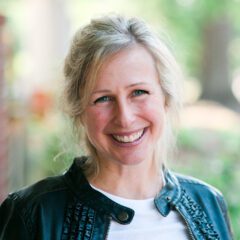DURHAM, N.C. (RNS) — This month we have marked the Jewish Passover and Christian Easter, and Muslims will soon end the holy month of Ramadan with the feast of Eid al-Fitr — a religious “convergence” that many celebrate as a sign of America’s robust religious diversity.
But in my purple state of North Carolina, Republican lawmakers have proposed another expansion of charter schools, a movement that has as one of its premises that parents ought to have the right to separate their evangelical Christian or Catholic children from Jewish and Muslim children and those of other faiths.
The topic of school choice has caused a fever here since last year, when the 4th Circuit Court of Appeals deemed that charter schools — specifically one in Brunswick County, near Wilmington, that demanded girls wear skirts — are “state actors.” This designation would prevent the state from approving religious charters — publicly funded private faith academies — as unconstitutional. Charter school advocates in at least 10 states are now seeking a reversal from the Supreme Court.
Attacks on public schools are hardly restricted to the right. A decade ago, the Gates Foundation funded a piece of propaganda called “Waiting for Superman” to persuade progressives that racial solidarity excludes support for teacher unions.
But in the past few election cycles, the anti-public school wing of the Republican Party has ramped up its use of religious freedom arguments to mobilize parents and convince voters that public schools are too progressive, too secular, too compassionate. The old arguments against public schools had it that teachers weren’t competent to teach. Today they are accused of being too good at brainwashing our kids.
The only cure for this, charter school backers say, is to redirect money for our public schools to charter schools, private schools, parochial schools — any institution where privilege and exclusion can operate freely. They appeal to non-Christian and minority parents by offering them vouchers for, say, Jewish academies or by pointing to inner-city charters that build character and empowerment.
But as Ronit Y. Stahl wrote recently, these appeals are a “fig leaf” used by white evangelicals and a majority Catholic court to bolster a white, conservative Christian agenda.
American Federation of Teachers President Randi Weingarten has named the escalation: “Attacks on public education are not new. The difference today is that the attacks are intended to destroy it.” In North Carolina, coalitions are seeking to counter these attacks and preserve public schools, but their funding is mere drops in a bucket compared to the right’s water cannons.
A key moment was the trifecta of doom handed down by the Supreme Court last June. The Dobbs v. Jackson abortion decision, decided June 24, was bracketed by two decisions on religion and public education. In Carson v. Makin, decided June 21, the court prohibited a state from choosing not to fund religious schools with public funding. Justice Sonia Sotomayor noted in her dissent: “Today, the Court leads us to a place where separation of church and state becomes a constitutional violation.”
In Kennedy v. Bremerton, decided June 27, the majority of the court went in from the other door, ruling that public-school officials are, in Sotomayor’s words, “required to allow one of its employees to incorporate a public, communicative display of the employee’s personal religious beliefs into a school event.” She continued, “Government neutrality toward religion is particularly important in the public-school context given the role public schools play in our society.”
This moment was decades in the making. The list of briefs on both cases shows that foundations committed to the privatization of public goods in the name of religion, and the use of public funding for religious endeavors, had invested heavily in the results.
The destabilization of public schools has an even longer pedigree, however. James Davison Hunter is the evangelical Christian sociologist at the University of Virginia credited by The Wall Street Journal with coining the phrase “culture wars” — in 1991, the year before Pat Buchanan. In “Culture Wars: The Struggle to Define America,” published that year, Hunter borrowed the term, he explained, from “the German kulturkampf of the last decades of the nineteenth century.” In Germany, “culture wars” were a battle to preserve “the religious content and character of public education.”
Hunter, through his Institute for Advanced Studies in Culture, established the conceit that the battles over education and children required a religious people versus secular humanist formula. He understood that the quickest way to portray public schooling itself as a problem was to paint public school proponents as enemies of religious freedom.
The Cato Institute’s amicus brief in the 2022 Carson v. Makin case draws almost directly from his 2000 book, “The Death of Character: Moral Education in an Age Without Good or Evil.”
Indeed, secularism in public schools has become akin to a state-established religion: the secular values that the state promotes conflict with deeply and sincerely held religious beliefs, so classroom conflicts often arise. Maine unjustly alienates religious individuals, treating them as second-class citizens in the context of school tuitioning for merely living as their faith demands.
Sotomayor’s minority dissent comes from a core conviction shared by the majority of U.S. citizens. In North Carolina, polls show a majority of citizens want more funding for public schools, not less, and even deep in the conservative heart of Texas, rural residents have rejected plans for vouchers. Public schools have support across partisan and religious lines. It is a public good that people across faiths share, recognizing that integrated and well-funded public schools deserve our vocal, interfaith support.

Amy Laura Hall. Courtesy photo
(Amy Laura Hall is associate professor of Christian ethics and of gender, sexuality and feminist studies at Duke University. She is the author, most recently, of “Laughing at the Devil: Seeing the World With Julian of Norwich.” The views expressed in this commentary do not necessarily reflect those of Religion News Service.)





